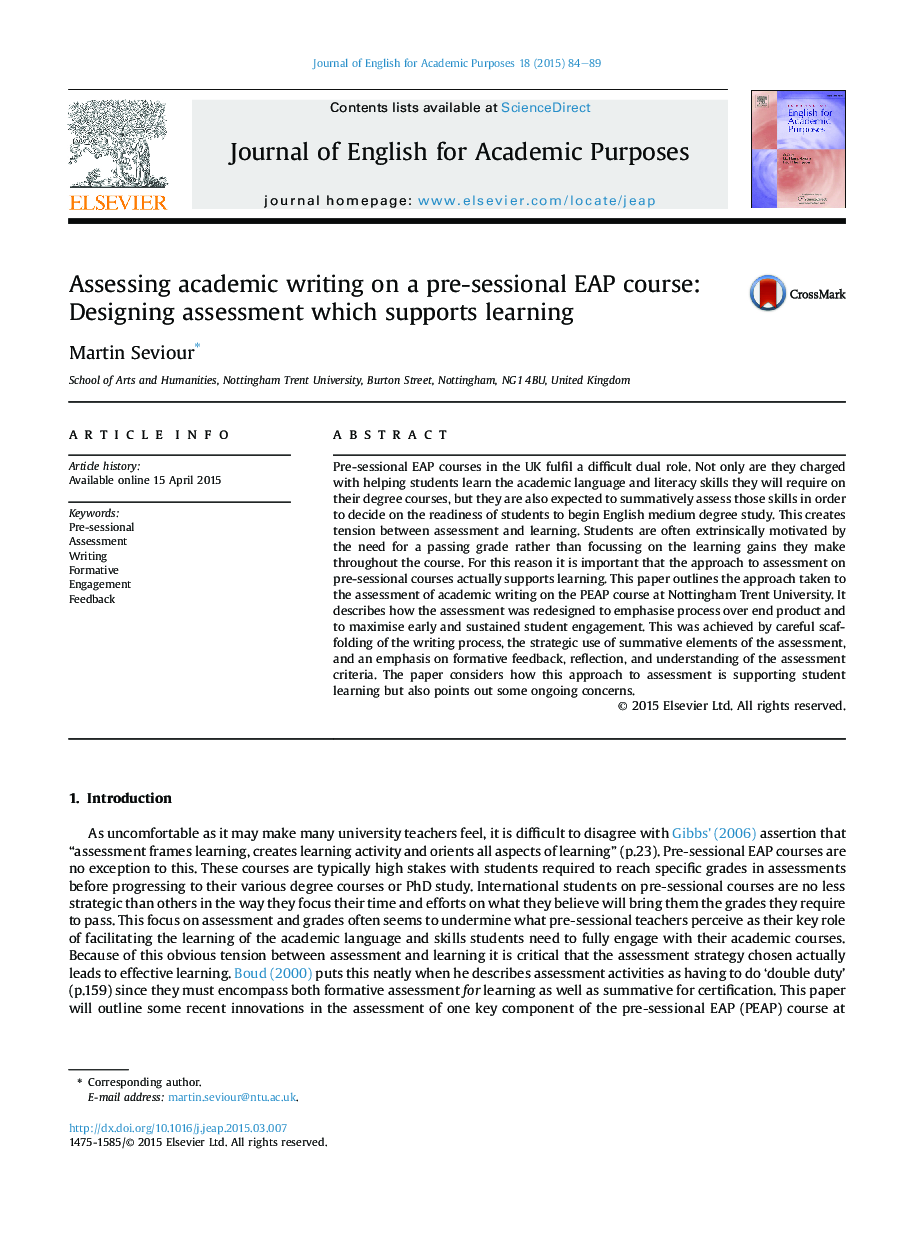| Article ID | Journal | Published Year | Pages | File Type |
|---|---|---|---|---|
| 360181 | Journal of English for Academic Purposes | 2015 | 6 Pages |
•Pre-sessional EAP courses must facilitate learning of key academic language and skills but also assess students summatively.•Assessment of academic writing should be designed so that it supports learning.•To support learning, assessment should promote early and sustained engagement and provide challenge and scaffolding.•Strategic use of summative and formative elements and a focus on feedback can help students learn from assessment.
Pre-sessional EAP courses in the UK fulfil a difficult dual role. Not only are they charged with helping students learn the academic language and literacy skills they will require on their degree courses, but they are also expected to summatively assess those skills in order to decide on the readiness of students to begin English medium degree study. This creates tension between assessment and learning. Students are often extrinsically motivated by the need for a passing grade rather than focussing on the learning gains they make throughout the course. For this reason it is important that the approach to assessment on pre-sessional courses actually supports learning. This paper outlines the approach taken to the assessment of academic writing on the PEAP course at Nottingham Trent University. It describes how the assessment was redesigned to emphasise process over end product and to maximise early and sustained student engagement. This was achieved by careful scaffolding of the writing process, the strategic use of summative elements of the assessment, and an emphasis on formative feedback, reflection, and understanding of the assessment criteria. The paper considers how this approach to assessment is supporting student learning but also points out some ongoing concerns.
